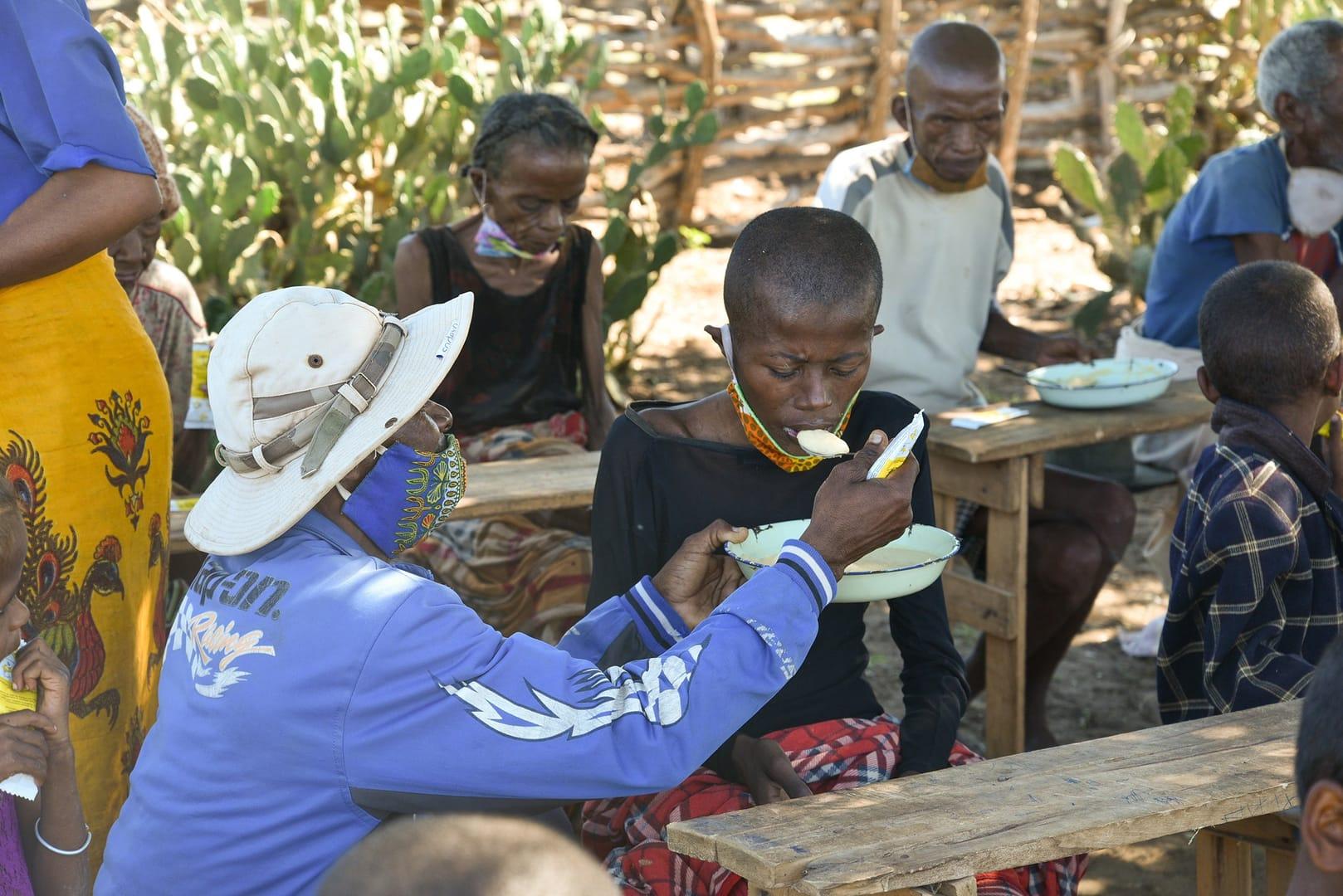NEW YORK – In recent testimony the head of Catholic Relief Services requested that Congress increase international humanitarian aid in the Fiscal Year 2024 budget to almost $73 billion, as climate change and the COVID-19 pandemic have diminished economic opportunities, and caused greater poverty and food insecurity across the world’s poorest nations.
The four accounts that CRS recommends the most aid go to are development assistance, international disaster assistance, HIV/AIDS, and migration refugee assistance, in that order. Separately, each of those aid requests is over $4 billion. Together, those aid requests total about $20 billion.
Other accounts CRS prioritized include: maternal and child health, nutrition, Tuberculosis. Global health security, contributions for international peacekeeping activities, and peacekeeping operations.
Fiscal Year 2024 begins July 1, and runs through June 30, 2024. This year’s international affairs budget is about $60 billion.
At the heart of the CRS testimony to the House Subcommittee on State, Foreign Operations, and Related Programs on April 14, given by the organization’s president and CEO Sean Callahan, was Pope Francis’ call on the World Day of Peace to combat climate change and inequality, and food insecurity,
“To live better lives after the COVID-19 emergency, we cannot ignore one fundamental fact, namely that the many moral, social, political, and economic crises we are experiencing are all interconnected,” Francis said. “Consequently, we are called to confront the challenges of our world in a spirit of responsibility and compassion.”
Callahan said CRS, the U.S. bishops’ international humanitarian arm, “urgently” takes up Francis’s call.
On global hunger, the United Nations World Food Program estimates 48.9 million people worldwide are on the brink of starvation, and extreme hunger has more than doubled since 2019. Callahan said that funding is crucial to support emergency food assistance programming, and development assistance to try and address the root causes of global hunger, poverty and malnutrition.
On climate change, one region of focus for CRS is the Dry Corridor of Central America – an ecological region that runs from southern Mexico through Guatemala, El Salvador, Honduras, Nicaragua, Costa Rica, and Panama. There, climate change has had a drastic impact on farmers, leading to higher levels of poverty and food insecurity, which in turn has led to more migration.
Callahan spoke of Rony Figueroa, a 35-year-old father of two from Honduras. He said Figueroa long struggled to grow enough food during the dry season – a reality for many farmers across the region amid record high temperatures, a higher variability of rainfall, and more frequent and intense weather events.
Callahan said that with the help of CRS and local partners, and USAID funding, Figueroa was taught effective farming practices that have helped him restore his land and protect water, while simultaneously boosting yields and incomes, even during dry spells. Using these new farming methods Figueroa built several greenhouses and a drip irrigation system, which allows him to collect rainwater during the wet, winter months to deliver to his plants in the dry summer months.
The innovation allowed Figueroa to not only provide food for his family, but also employ people in his community, Callahan added, noting that the innovative agricultural practices can have an immense impact when scaled to more farmers across the Dry Corridor.
“For families like Rony’s, and countless others, this is the difference between resilience or crisis, putting food on the table or going hungry, and staying in their communities or selling assets to migrate,” Callahan said. “Rony’s story highlights what can be accomplished when local leaders and entities, research institutes, ministries of agriculture, public and private agricultural service providers and farmers work together to confront the effects of climate change.”
“But to continue to do so, the subcommittee and Congress must increase funding for the above international poverty-reducing accounts,” he added.
Madagascar is another example of a country where climate change has had a dire impact. More than 500,000 people in the African nation were impacted by five tropical storms and cyclones across three months in 2022. The storms brutalized the country’s infrastructure. Similar to the Dry Corridor, some of the requested aid would go towards teaching farmers in Madagascar more effective methods.
In both cases, Callahan emphasized the important role of local partners.
“To care for our common home and battle inequality and food insecurity, not only what we do, but also how we do it is critical,” Callahan said. “International assistance must shift more funding directly to local entities and must empower local organizations to implement, evaluate, and own their own development.”
“We have learned that when communities and local organizations are at the center of solutions and are viewed as agents of change rather than victims of climate impacts, they can better adapt,” he added.
To close his testimony, Callahan shifted his focus to another issue that may impact CRS’ ability to carry out its mission in partnership with the federal government. He issued a plea for Congress to maintain the Helms Amendment in the FY 2024 budget. The amendment, signed into law as a part of the Foreign Assistance Act of 1961, limits the use of foreign assistance funds for abortion.
“While we are committed to working with Congress to foster love, justice, and peace, we have grave concerns about providing taxpayer funding for activities inconsistent with the Catholic faith and basic human rights,” Callahan said. “Integrating programming elements that many consider morally unacceptable is not in the best interest of the U.S. and would exclude providers that have strong legitimacy and credibility with local partners.”
Democrat Rep. Barbara Lee of California, the ranking member of the House Subcommittee on State, Foreign Operations, and Related Programs, which Callahan testified to, recently joined six other members of Congress to re-introduce a bill that would repeal the Helms Amendment.
“The disastrous Helms Amendment is more than a line item in our appropriations bills,” Lee said. “It is more than a logistical challenge for recipients of U.S. foreign aid. It is a matter of life or death.”
Follow John Lavenburg on Twitter: @johnlavenburg













